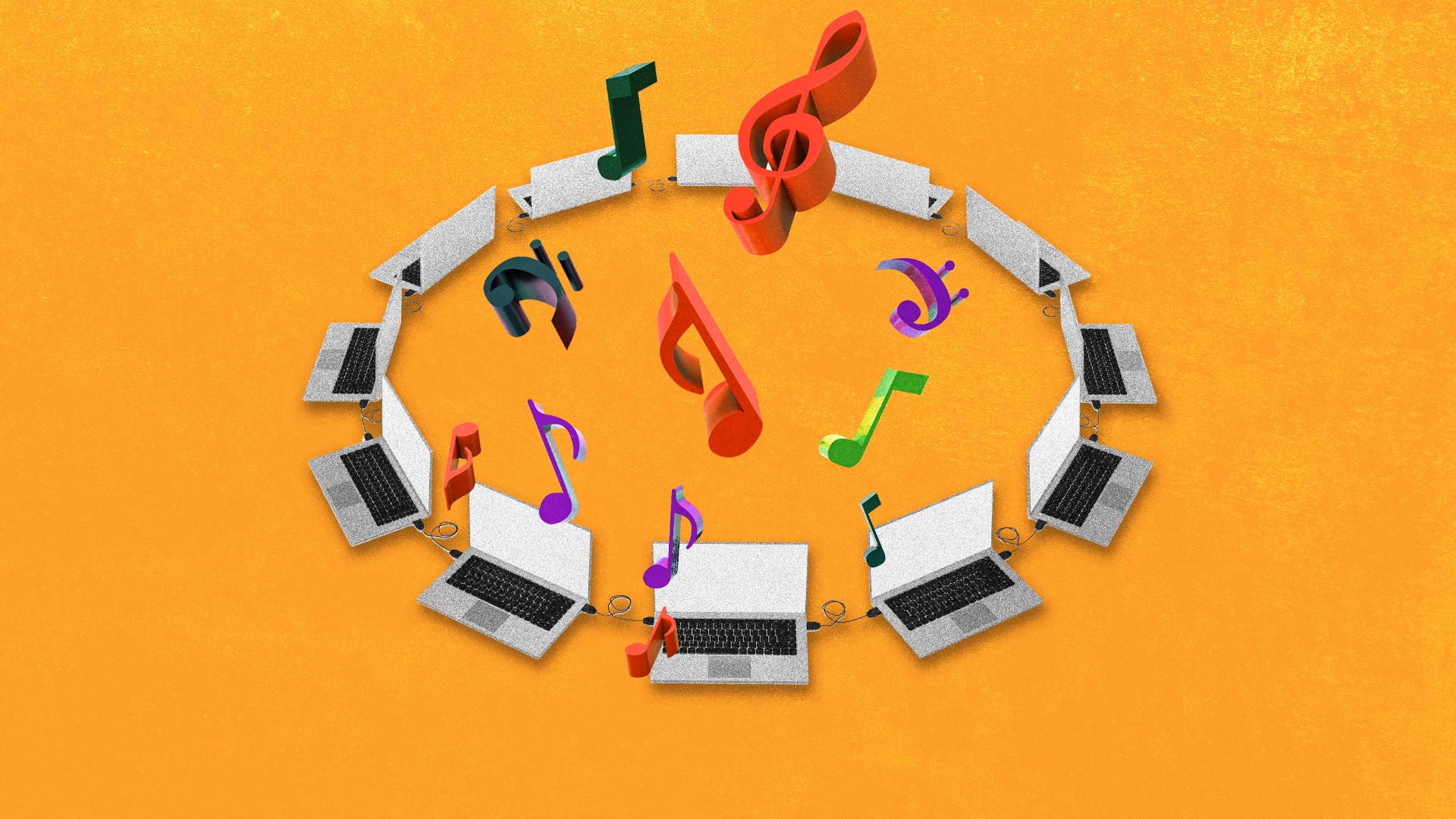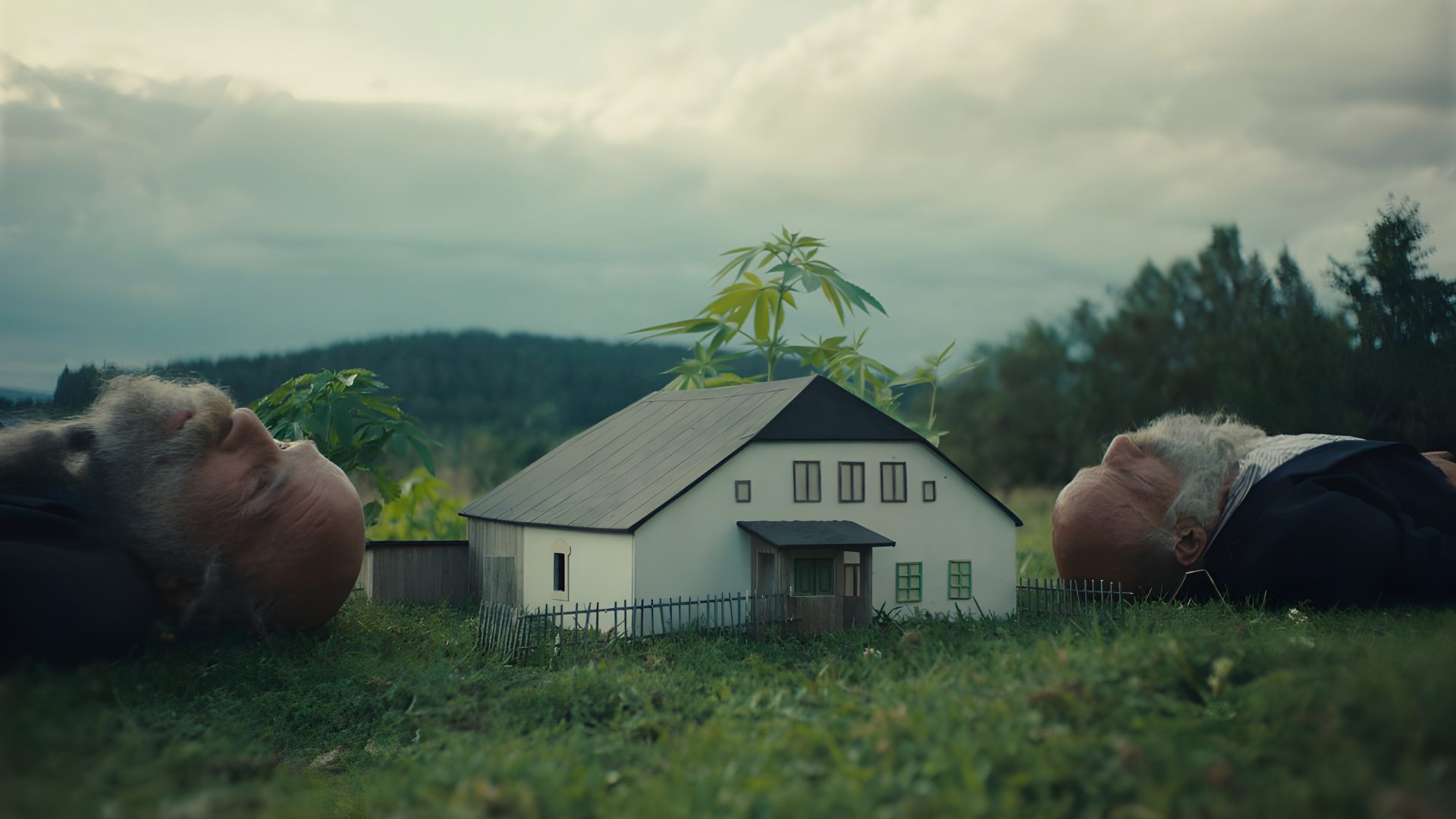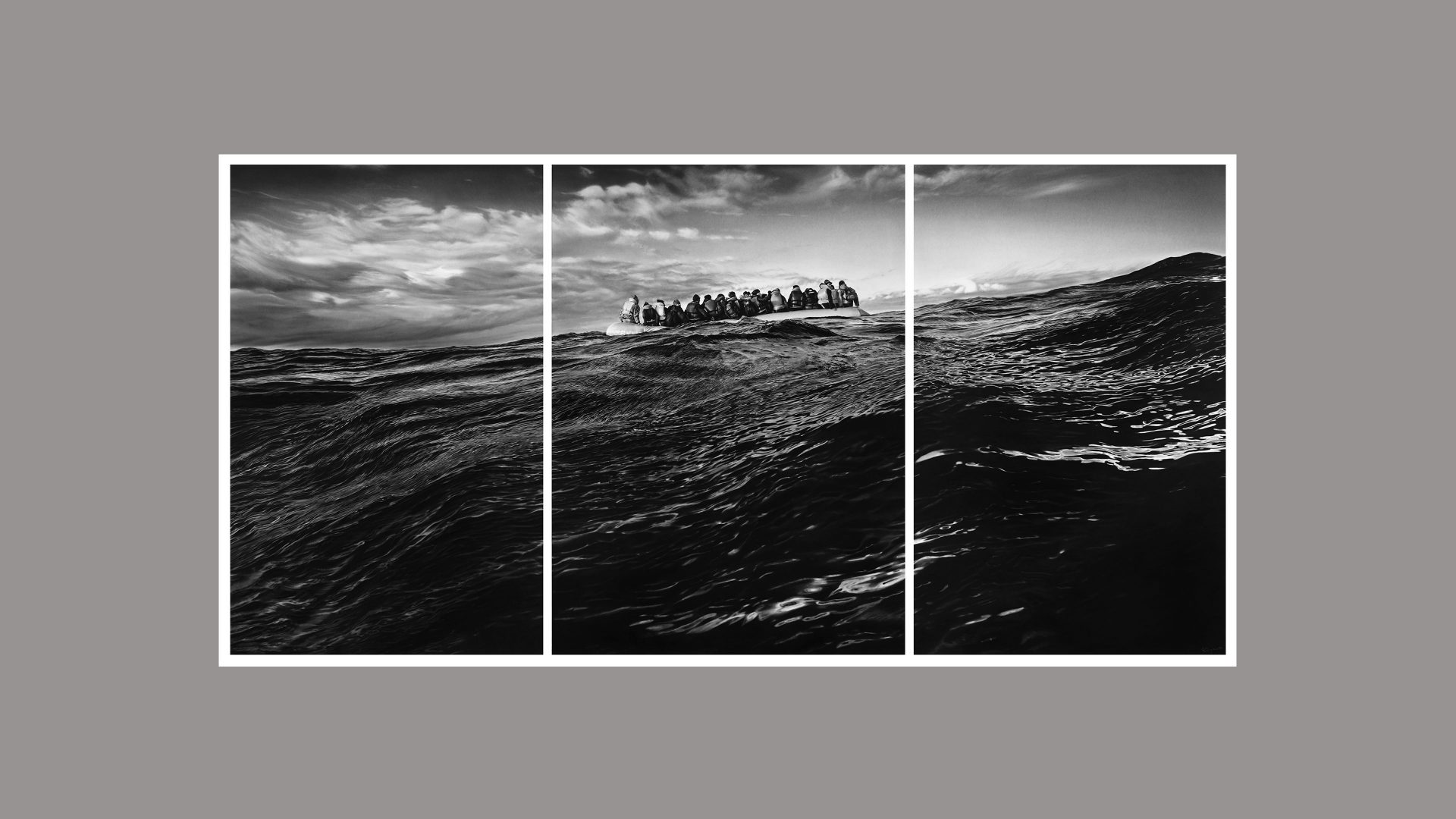If your laptop could talk, it would, first of all, probably express disgust and horror at some of your browsing habits; it would also, in all likelihood, complain of being bored, underutilised and deprived of creative stimulus.
Sound and performance artist Kat McDonald is trying to change that, one guerilla performance at a time. In November last year she convened the first meetup of the London Community Laptop Orchestra, which she describes as ‘a community run laptop orchestra making sounds in a variety of unusual places’. It was both a success (people showed up with their laptops and made music together), and not without challenges (the British Library, where the inaugural performance took place, was…less-enthused, and eventually kicked the performers out of the building), but it inspired her to persist, and the Orchestra is now set for its first official performance, on August 20 this year, working alongside the Peckham Chamber Orchestra in South London.
You may well be asking ‘yes, ok, but what is a laptop orchestra?’ Kat explains it as being: “inspired by groups like the scratch orchestra of the early-70s; open, interactive, community-led, and a pushback against the idea that music and art can only exist within predefined, rigid spaces and structures’. What that means in practice is a bunch of people coming together with their computers and making improvised sounds together, using their machines in whatever way they wish to create unexpected, unusual and, yes, quite-weird-sounding music.
“I remember sitting in a cafe, watching people working, and thinking ‘what if everyone was making music together at the same time?’” says McDonald. “It can vary a lot – but I like to make it so that anyone can turn up with any old kit. Even if all they are doing is tapping keys, that contributes to the sound. No experience is necessary, or indeed musical talent. Part of this is just about wanting to make sound art and experimental art more accessible and playful; contemporary classical music can be very po-faced, but this is meant to be camp or fun or saying something political, rather than being perfect.”
As to why laptops, McDonald explains that it’s the ubiquity of the device and its centrality to so much of everyday life that appeals. “They’re part and parcel of your daily life, your ‘good screen’ and your ‘bad screen’, and I have always been interested in the concept of the laptop as a multitool. The most interesting thing is the fact that it has its own language, its own syntax…much like music has its own language, so do computers, and playing with these tools in an interesting way, and taking something familiar and a little banal and making it…unexpected and fun and interesting, feels both creative and oddly-subversive.”
Suggested Reading

Taipei’s underground rave scene
In practice, what this ends up being can vary wildly from rehearsal to rehearsal and performance to performance. The British Library event involved participants bringing their laptops along and using them to run custom code that McDonald had written and put on USB sticks to perform a guerilla performance of In C by Terry Reilly (before they were ejected from the main lobby and garden). Other events have involved people using keyboards, gamepads, contact-mics or phones as control interfaces to make the machines create music. The performance in August is set to be a more formal event, but Kat sees it as an opportunity to expand the reach of creativity and engage a different audience in a more ‘traditional’ orchestra setting; as she puts it, “classical music and performance art are often places where enthusiasts congregate – I like the idea of expanding the audience and the scope of the work. Music can be anything and can be made from anything, and there’s a lot of interesting space in thinking of the laptop in different contexts and as a potentially-infinite new instrument.”
It’s also in part a response to the new AI-enabled world where the creation of ‘music’ is as easy as typing a four-word prompt, and machine-generated band Velvet Sundown can take Spotify by storm with noone really seeming to care all that much. Along with the unexpected resurgence of algorave in London, where people come together to livecode dance tracks and accompanying visuals to an audience of sweaty geeks, the Laptop Orchestra exists as an antidote to frictionless sound. “People don’t know how things work any more,” says McDonald, “and AI is an extension of this, pulling away from the craft of the thing that is being made; things like the Laptop Orchestra pulls them back. Not to say that AI can’t be art, but when you strip back and boil down the complexity of the decision making process behind the making of said art it feels like something is lost. We want to get that back.”
What does it sound like? It sounds… amazing, in the most literal sense of the word, like John Cage composing in chiptune, like a bunch of hard drives falling down a flight of stairs, like the sound of machines talking to each other in a language that’s not designed for human ears. It sounds, surprisingly, like an orchestra, but one in which the musicians may not be human and who are able to keep time in signatures we haven’t quite invented yet.
After August’s concert, McDonald says she’s planning something more spontaneous, talking obliquely about performing in an arts institution “with ties to the global arms movement” as an act of protest, but her overall ambition is more humanistic. “As an artist and as a person, the most important thing we have is how we express ourselves, however imperfectly – this is what we’re trying to do with the laptop orchestra, because that’s where the humanity is. Love, personality, attention, personhood – you can create all of this with technology, but technology cannot create it alone.”
The London Laptop Orchestra’s next performance is on August 20, as part of the Peckham Chamber Orchestra’s Summer Concert




